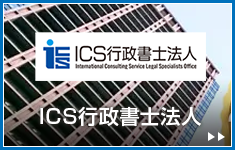
2-1. What is a Working Visa?
A working visa is not a legal term, but a common term for “Status of Residence with a Work Permit”. Originally, visas are under the jurisdiction of the Ministry of Foreign Affairs, and the status of residence is under the jurisdiction of the Ministry of Justice (Immigration Service Agency), and it can be said that working visas and status of residence with a work permit are two different concepts.
Therefore, “obtaining a working visa” means “obtaining one of the residence qualifications permitted to work and earn income in Japan” from among the many statuses of residences.
The status of residence that permits work is “Diplomacy“, “Official“, “Professor“, “Artist“, “Religious activities“, “Journalist“, “Business Manager“, “Legal/Accounting services“, “Medical services“, “Researcher“, “Instructor“, “Engineer“, “Engineer / Specialist in humanities / International services“, “Intra-company transferee“, “Entertainer“, “Skilled labor“, “Designated labor“, “Technical intern training“ and “Highly skilled professionals“ under the Immigration Control and Refugee Recognition Act (commonly known as the Immigration Act). For Designated activities, you can work under certain conditions.
In addition, “Permanent Residents“, “Spouse or Child of Japanese, etc.“, “Spouse or child of a permanent resident, etc.“, and “Long-term Residents“, have no restrictions on the type of work, working period, etc. when working.
Each working visa has a “period of stay“. If you want to stay and work in Japan beyond this period, you will need to apply for a visa extension. With this renewal request and obtaining permission, you will be able to continue to stay in Japan until the next deadline.
2-2. Engineer / Specialist in Humanities / International Services Visa
What is the status of residence for engineer / specialist in humanities / international services?
In the past, “technology” for science and “humanistic knowledge / international business” for humanities was in separate categories. But in order to flexibly respond to the needs of companies, etc. regarding the acceptance of foreigners within global economies, the status of residence was improved and unified into the current classification, and “engineer / specialist in humanities / international services” was established in the revision of the Immigration Control Act of 2014.
Examples of occupations applicable to engineer / specialist in humanities / international services
Science: System engineer, Software engineer, Programmer, IT engineer, Technical developer, Designer, etc.
Humanities: Sales, Marketing, Human resources, General Affairs, Accounting, Planning, Public relations, Interpretation, Translation, Language teacher, Designer, Overseas business transaction, etc.
* So-called simple labor jobs do not correspond to engineer / specialist in humanities / international services.
Examples of activities applicable to engineer / specialist in humanities / international services
- After graduating from university with a major in engineering in his/her home country, engaged in online game development and support work at a game developer, based on a contract with a corporation responsible for the game business division of a group company in Japan. About 250,000 yen salary per month, engaged in system design, comprehensive testing, and inspection tasks related to the company’s next online game development project.
- Completed a doctoral course in Japan, majoring in electronics and informatics, and receiving a monthly salary of approximately 250,000 yen based on a contract with a Japanese telecommunications business company and engaged in work related to information security projects at the company’s research institute.
- After graduating from university with a major in accounting in his/her home country, received a monthly salary of approximately 250,000 yen based on a contract with a computer-related / information processing company in Japan, and at the company’s overseas business headquarters engaged in accounting operations related to trade, etc.
- After graduating from university with a major in business administration and engaging in management consultants, etc., he/she received a monthly salary of approximately 450,000 yen based on a contract with an IT-related company in Japan and engaged in consultant business in business transactions, etc.
- After graduating from university with a major in economics and international relations in his/her home country, he/she received a monthly salary of about 200,000 yen based on a contract with a Japanese automobile manufacturer and provided marketing support services between his/her home country and Japan. Engaged in research related to the market, users, automobile import trends, sales management / supply & demand management of automobiles, strengthening cooperation with local dealers, etc.
* March 2008 Ministry of Justice Immigration Bureau (current Ministry of Justice Immigration Services Agency) Partial excerpts from March 2015 revised materials.
Requirements to acquire an engineer / specialist in humanities / international services visa
1. Educational requirements
- Graduated from a graduate school, university, or junior college (domestic or overseas)
- Graduated from Japanese vocational school
2. Work experience
For those who do not meet the above educational requirements (high school graduates, etc.)
In general, over 10 years of work experience
* Includes major period at an educational institution
Exception: Three-year work experience
* Businesses that are exceptions: Businesses that require thinking or sensitivity based on foreign cultures (example: public relations, interpreting, translation, language instruction, overseas business transaction, design, product development, etc.)
Important to acquire engineer / specialist in humanities / international services visa
1. Requirements for foreign national
Education
It is required that what you “majored in” at graduated school and the “job description” planned at the company of employment is related. For example, if you major in accounting at a university, you can get a job in finance such as accounting. At the time of application, it is necessary to explain and prove the relationship. Therefore, it is very important to confirm your major’s content in advance with a graduation certificate and academic transcript.
Work experience
In order to prove your work experience, you must obtain the documents to prove your work experience from the company you worked for in the past. If you are unable to get documents because you cannot contact the company due to bankruptcy or other reasons, unfortunately, you will not be able to prove your work experience, even if you actually had work experience, obtaining a skilled labor visa will be extremely difficult.
No criminal record
If the foreigner has a criminal record, a visa cannot be acquired.
2. Requirement for company
Employment Contract
As a general premise, a working visa will not be issued unless the employer of the foreign person is hired. Therefore, the company needs to create a “Contract” with the foreigner.
The term “Contract” means employment that includes assignment, consignment, commissioning, etc. However, it must be continuous with a specific company / institution (multiple possible).
In addition, “Engineer / Specialist in humanities / International services” is required to be an activity based on “contract with a public or private institution in Japan” (the same applies to “Highly skilled professional HSP-a / HSP-b”).
Salary Amount
At the time of the employment contract, the salary level of the foreigner must be “equal to or higher than that of a Japanese person”. In other words, the company cannot mistreat the employee because they are a foreigner.
Business Conditions
The business conditions of the company need to be stable. Usually, you will prove the stability of your business by attaching a financial statement when you apply.
If the company is new and you cannot attach a financial statement, a business plan should be attached as an alternative document.
2-3. Skilled Labor Visa
What is the status of residence for skilled labor?
The skills are roughly in two categories. Activities as a chef (activities involved in work that require specialized skills) and activities besides chefs (activities involved in work that require specialized skills in a special industrial field).
Examples of occupations that correspond to skills
Chefs (licensed cooks, cooks) of foreign restaurants such as Chinese food, Vietnamese food, Filipino food, Indian Nepalese food, Thai food, Italian food, French food, etc., trainers (animal trainers), sports trainers, sommeliers, airplane piolets, etc.
Requirements for the acquisition of a Skilled Labor Visa
* The following are examples of a chef of a foreign restaurant which is the major occupation in skilled labor visas.
~The case of a chef at a foreign restaurant~
1. Work Experience
Principle: 10 years of work experience
* Includes major period at an educational institution
* Work experience in the past is required but does not have to be recent
Exceptions: 5 years of work experience
* Exceptional occupations example: Cooks at a Thai restaurant (requires proof of recent employment as a Thai cuisine cook)
Keys to acquiring a Skilled Labor Visa
1. Requirement for foreign national
Work experience
The Certificate of Employment etc. will be used to prove your work experience. If you are unable to get the documents because you can’t contact the company due to bankruptcy or other reasons, unfortunately, you will not be able to prove your work experience, even if you actually had work experience, obtaining a skilled labor visa will be extremely difficult.
In addition, the investigation will be done by the Immigration Service Agency since a skilled labor visa does not require educational background requirements. Although this applies to all procedures, we sincerely hope that more foreigners will be able to take active roles in Japan by obtaining a working visa through honest declaration and application.
2. Requirement for company
Expertise
Expertise is required, such as providing a single meal or course meal of foreign food.
Employment Contract
As a general premise, a working visa will not be issued unless the employer of the foreign person is hired. Therefore, the company needs to create a “Contract” with the foreigner.
The term “Contract” means employment that includes assignment, consignment, commissioning, etc. However, it must be continuous with a specific company / institution (multiple possible).
*”Engineer / Specialist in humanities / International services” and “Highly skilled professional HSP-a / HSP-b” are required to be an activity conducted based on a contract with a public or private institution in Japan.
Salary Amount
At the time of the employment contract, the salary level of the foreigner must be “Equal to or higher than that of a Japanese person”. In other words, the company cannot mistreat the employee because they are a foreigner.
Permit
If you want to start a new restaurant business, it is essential to obtain a restaurant business license in advance.
2-4. Business Manager Visa
What is the status of residence for a business manager?
“Business Manager” is a visa to be obtained when “a foreigner wants to start a business in Japan and engage in the running or managing a company” or “become a manager of an existing company”. In addition, it is a major premise that the foreigner is engaged in deciding important matters regarding the operation of a business, executing the business, or conducting audits.
Status of residence that allows foreigners to run a company in Japan
If you have the status of residence such as “Permanent Residents”, “Spouse or Child of a Japanese, etc.”, “Spouse or child of a Permanent Resident, etc.”, “Long-term Resident”, “Highly Skilled Professionals (only partly)”, “Business Manager”, management of a company is permitted in Japan. Other work visas such as “Engineer / Specialist in Humanities / International Services”, “Skilled Labor”, etc. does not allow management of a company and it is necessary to apply for permission to change to a business manager visa.
Examples of occupations applicable to business management
Representative director, director, president of Japan office, factory manager, branch manager, etc.
Keys to acquiring a business manager visa
1. Business office
* Please note that the office must exist in Japan and a virtual office cannot be recognized as an office.
Rental property
- Clarify that the purpose of property use is “business, store, office, etc.”
- Clarify that the lease contract is signed with the name of the corporation, etc., and that it is used by the corporation.
When using your home, etc. as an independent business (when the business is operated using part of the property you rent as a residence)
- You need permission from the lender for the purpose of use other than housing (as an establishment, you will need the lender’s consent to sublease between the borrower
- and the corporation)
- The borrower also permits the corporation to use the home as a business location.
- There needs to be a room dedicated to the business purpose, equipped with facilities for the corporation to run the business.
- The agreement on payment of common charges such as utility charges for the property must be clear, and a usual company sign must be displayed.
2. Business scale
- Two or more full-time employees living in Japan (must be employees other than those engaged in business administration or management), and the scale of the business must match the number of full-time employees engaged.
3. When the applicant tries to engage in management
- Over 3 years of work experience in business administration or management
- Must receive equal or more rewards as a Japanese national
4. Proof of business continuity and stability
* In the case of starting a business, obtaining a business manager visa does not require educational background requirements or work experience. However, it is necessary to objectively prove in a business plan that a business can be established without management experience.
2-5. Intra-company transferee Visa
What is the status of residence for intra-company transferee?
This is a residence qualification required for foreign nationals who enter Japan due to personnel changes or transfers because it applies to employees who are eligible for “engineer / specialist in humanities / international services” activities.
Cases that correspond to the intra-company transferee
- Transfer between parent company and subsidiary.
- Transfer between subsidiaries.
- Transferred to an affiliated company.
Requirements for obtaining an intra-company transferee visa
- Worked at a head office or branch company in a foreign country for the last year, and also engaged in engineer / specialist in humanities / international services.
- The salary level is equal to or higher than that of Japanese citizens. (The reward amount cannot be reduced even if the head office is located in a foreign country where prices are lower than in Japan.)
Keys for acquiring an intra-company transferee visa
- Simple labor is not allowed.
- Must fulfill educational background requirements or work experience.
- Attach documents (resignation, etc.) that prove the relationship between a foreign corporation and a Japanese corporation.
2-6. Designated Activities Visa
What is the status of residence for designated activities?
“Designated Activities” of the status of residence are activities that do not correspond to other statuses of residence, and are “status of residence in which the Minister of Justice specifically specifies activities for each foreigner”. In other words, designated by the Minister of Justice, it is possible to increase the types of activities for a resident in Japan, without amending the Immigration Control and Refugee Recognition Act, the so-called Immigration Control Act.
Designated activities include “Designated Activities (specifically designated by the Minister of Justice for each foreigner)” and “Non-Designated Activities (activities which have not been clarified)”.
Examples of major occupations that correspond to designated activities
Designated Activities
Item 1: Housekeepers for diplomat/consular
Item 2 – 1: Housekeepers for highly skilled professionals, managers, etc.
Item 2 – 2: Housekeepers for of highly skilled professional
Item 3: Officials of the Japan-Taiwan Relations Association of Japan office staff and their families
And so on.
Non-designated activities
・Continue job hunting
・Apply for refugee status
・Prepare for departure
・Invite to Japan (older parents)
Requirements for “Designated Activities Visa Item 46” to support the employment of international students
* The following is compiled with reference to the Immigration Services Agency “Guidelines (established in May 1991) for “Designated Activities “related to employment support for international students (graduates of Japanese universities)”.
1. International students who have graduated from a Japanese graduate school or a four-year university
(Overseas graduate schools / universities, domestic junior colleges / vocational schools are not eligible)
2. Students who have “Japanese Language Proficiency Test N1” or “BJT Business Japanese Proficiency Test 480 points or more”
As an exception, students who have majored “Japanese” at a graduate school or university and graduated from the university will be considered equivalent to “Japanese Language Proficiency Test N1” or “BJT Business Japanese Proficiency Test 480 points or more”.
3. Must be a business that requires smooth communication using Japanese. Specifically, it is not enough to simply
understand the work instructions from the employer, etc. and perform what you are told. There needs to be a work element such as “translation / interpretation”, in which the work requires you to use your Japanese language ability spontaneously and establish two-way communication with other people.
4. It must be recognized that the job can utilize a wide range of knowledge and apply abilities acquired at Japanese
universities or graduate schools. The content of the business you will engage in or expected to engage in needs to include a certain level of business due to academic background, etc. which is subject to the status of residence of “engineer / specialist in humanities / international services”.
5. Contract type must be “full-time” employment.
Part-time jobs are not allowed. In addition, you are not allowed to work as temporary staff and work in a dispatched destination. Furthermore, since the contracting institution must properly manage employment, it will be necessary to confirm the status of the social insurance of the employee if necessary.
6. You must receive a reward equal to or greater than the reward received by a Japanese national
The reward will not be judged based on a certain standard in an even way. It will be based on the wage system of the region or individual company, and that you are receiving equal to or higher than that of a Japanese person with the same duties, or the reward for the same type of duties at a different company will also be in consideration. In the case of Designated Activities Item 46, the wages of Japanese university graduates and graduates, including the salary increase, will be used as a reference. In addition, if a former international student has working experience in his/her home country, etc. the reward will be in accordance with the experience.
3-1. International Marriage
Various documents and procedures are required for a Japanese person and a foreign national to have an international marriage and be legally recognized as a couple. Unlike the marriage between Japanese people, the laws of the partner country need to be referred to. For example, Japan and Taiwan have the same marriage requirements, but Japan and China have different marriage requirements.
It is important to note that international marriage and visas are different systems. Marriage does not necessarily mean that you can obtain a “Spouse visa” status of residence.
A status of residence that can be acquired by a foreigner who has married internationally
(so-called marriage visa or spouse visa).
- If the spouse is “Japanese”, you can acquire a “Spouse or Child of Japanese, etc. Visa”
- If the spouse is a “Permanent Resident”, you can acquire a “Spouse or Child of a Permanent Resident Visa”.
- If the spouse is a “Child of a Japanese person (“Spouse or Child of Japanese, etc. Visa”)”, you can acquire a “Long-term Resident Visa”
- If the spouse is a “Child of a Permanent Resident (“Spouse or Child of a Permanent Resident Visa “)”, you can acquire a “Long-term Resident Visa”
- If the spouse is a “Long-term Resident”, you can acquire a “Long-term Resident Visa”
- If the spouse has “Some other Visa”, you can acquire a “Dependent Visa” * There are exceptions
Required documents for marriage notification in Japan
- Marriage registration
- Copy of family register
- Passport
- Certificate of Legal Capacity to Contract Marriage or alternative documents (Oath, etc.)
Required documents details
1. Marriage registration
Obtain at the municipal office. The description is the same as the marriage between Japanese people.
2. Copy of family register
In the case of an international marriage, it is not necessary if the Japanese partner has the same resident registration as the permanent residence. Necessary when the government office to which the marriage registration is submitted is different from the government office where the resident registration is made (when the permanent residence is different from the municipality of the submission destination).
Passport
If your foreign partner is in Japan, you will need to prove the nationality of the foreign national.
Certificate of Legal Capacity to Contract Marriage
This is a certificate that the foreign partner is single and that there is no issue in marrying under the law of the partner country, and is issued at the Japanese embassy or consulate in the country of origin of the foreign partner.
If it is not written in Japanese, you must translate it into Japanese to submit. In addition, you must mention the translator’s name and address.
3-2. Spouse Visa
A spouse visa or a marriage visa is the conventional name for “Spouse or Child of Japanese, etc. Visa”
What is a spouse visa?
A Japanese spouse, a Japanese specially adopted child, and a person who was born as a Japanese child (including recognized illegitimate child) are called a “Spouse or Child of Japanese, etc.” Please note that Japanese spouses do not include relatives or divorces. Due to the many advantages, there are many fake marriages to the spouse visa (marriage visa). Therefore, it is necessary to accompany the actual condition of the marriage, such as living together, assisting with a partner, and a married life recognized by society.
Key to obtaining a “Spouse Visa”
You must show evidence and documentation that both married parties truly want a married life. There is a “questionnaire” that summarizes what the Immigration Service Agency of each region wants to ask in advance. There are a wide variety of questions, but it is important to honestly describe the facts for each question.
Example question in the questionnaire
- The process of how you got married
It will be required to describe in detail when you first met, where you met, and how you got married. - If you were introduced or not
If you were introduced to your partner, you will need to fill in the person’s address, name, phone number, and date of introduction. - About language
You will need to describe the language used in daily conversations between the couple. There are detailed questions on how much you understand the native language of your partner and how and where your partner learned Japanese if he/she understands Japanese. It is important to honestly write down the facts. - About the certifier at the time of marriage
When registering a marriage in Japan, two witnesses must be certified and their name, address, and telephone number of each person must be mentioned.
There are many questions besides the examples. The key is to carefully fill in the facts for each question.
3-3. International Divorce
The divorce of a Japanese partner who has been married internationally is called “Public Relations Divorce” (international divorce). Naturally, a divorce between Japanese nationals will apply Japanese law, but if one is a foreigner, there are cases where the foreign law is applied, and the procedure will require special care.
Visas after Divorce
You will lose “Spouse or Child of Japanese Visa, etc.” status of residence you obtained after your international marriage when your divorce is established.
4-1. Permanent Resident Visa
A “Permanent Residence” is a permit that is required for a foreigner when he/she wants to live permanently in Japan possessing his/her foreign nationality and is the conventional way to call a Permanent Residence Visa. After obtaining a Permanent Residence, you will receive no restrictions to your residence activities, no need to renew your status of residence and enjoy many benefits living in Japan.
You are not allowed to apply for the Permanent Residence in a short period of time. As a general rule, you must apply for one of the status of residence as below and live in Japan for 10 years or more to be allowed to apply.
Status of Residence
“Diplomacy”, “Official”, “Professor”, “Artist“, “Religious activities“, “Journalist“, “Business/Manager“, “Legal/Accounting services“, “Medical services“, “Researcher“, “Instructor“, “Engineer“, “Specialist in Humanities/International Service“, “Intra-company transferee“, “Entertainer“, “Skilled labor“, “Designated labor“, “Technical intern training“, “Highly skilled professionals“, “Cultural activities“, “Short-term stay“, “International students“, “Training for international students“, “Dependents“, “Designated activities“, “Permanent residents“, “Japanese spouse, etc. “ (Specially Adopted, Person Born as a Japanese Child)”, “Spouse or child of a permanent resident, etc.”, (children of a permanent resident who were born in Japan and continue to reside in Japan) and “Long-term residents”.
Permanent Residence Requirements
(1) Good Conduct
Has been complying with the law and lived with good conduct in society.
(2) Has sufficient assets or skills to make a living on one’s own.
Can expect a stable everyday life in the future utilizing the person’s assets or skills they possess, without creating a burden to the public.
(3) Must be recognized that the person’s permanent residence is in the interest of Japan.
A) As a general rule, you must stay in Japan for more than 10 years.
* However, within this period, you must continue to work for 5 years or more with authorized employment (excluding the status of residence “Technical intern training” and “Specified skill worker (i)”) or residence qualifications.
B) Not been fined or imprisoned.
* Properly fulfilling public obligations (payment of tax, public pension, and public medical insurance, and obligations such as immigration control and notification prescribed by the Refugee Recognition Act).
C) Regarding the status of residence that you currently hold, it must be the longest period of stay stipulated in Immigration Control and Appendix 2 of the Refugee Recognition Act Enforcement Regulations.
D) There is no risk of harm from a public health perspective.
* However, if you are a spouse or child of a Japanese national, permanent resident or special permanent resident, you do not need to comply with (1) and (2). In addition, those who have been recognized as refugees do not need to comply with (2).
An exception related to the principle 10 years residence
According to the guidelines for permanent residence revised on May 31, 2019, those who meet any of the following conditions can apply for permanent residence even if they have not stayed continually in Japan for 10 years or more.
(1) Spouse of Japanese, spouse of permanent resident, spouse of a special permanent resident. Marriage life continuing for at least 3 years and has been living in Japan for at least 1 year.
(2) Child of the spouse of a Japanese, child of the spouse of permanent resident, child of the spouse of special permanent resident and have been living in Japan for at least one year
(3) Long-term residents
Must be living in Japan for at least 5 years
(4) People who have been recognized as a refugee
Must be living in Japan for at least 5 years after recognition
(5) People who are recognized for their contribution to Japan
Recognized for their contribution to Japan, in the fields of diplomacy, society, economy, culture, etc. and has been living in Japan for at least 5 years.
4-2. Long-term Resident Visa
A long-term resident is a status of residence that applies to “a person whose residence is specified by the Minister of Justice for a certain period of time in consideration of a special reason.” Long-term Residents are “Notified Long-term residents (subject to the conditions previously notified to the Minister of Justice)” and “Non-notified Long-term Residents (Those who are allowed to reside by the Minister of Justice considering special reasons).”
Advantages and things to be aware of the status of residence for long-term residents
You will not have any restrictions and can work in various occupations. However, unlike permanent residents, the period of stay is defined, and a renewal process will be necessary.
Example of a person who corresponds to notified long-term residents
- People with Japanese ancestry
- Spouse of a person with Japanese ancestry
- A child of a long-term resident
- Japanese spouse’s biological child (so-called stepchild)
Example of a person who does correspond to non- notified long-term residents
- Japanese nationals, permanent residents, those who wish to stay in Japan after divorcing or bereaved with a spouse who is Japanese
- Foreign parents who have custody and take care of their biological child who is Japanese nationality
4-3. Dependent Visa
For dependent visas, this is a specific example to make things clear: Let’s say there is foreigner A, who has a working visa and works in Japan. Mr. A has a dependent wife B and a child C. They have decided to live together in Japan. A dependent visa is necessary in cases like this.
Family with qualification
- Only a dependent spouse or child
Required documents example for dependent visa
- Documents that prove your relationship with the supporter
- A copy of supporters Alien Registration Card or Passport
- Documents certifying the supporter’s ability to support
The documents required to obtain a dependent visa differ depending on the person’s circumstances. Please contact us for a consultation.
4-4. Student Visa
A student visa is a visa that is accepted by students at Japanese language schools in Japan, universities, and vocational schools in Japan. Since the purpose of residence is to study, as a principle you are not allowed to work. Therefore, it is necessary to prove that you have sufficient assets (including scholarships) to cover the living expenses required to stay in Japan.
International Students and Permission for Part-time Job
If an international student is financially distressed and wants to work part-time, “Application for permission for part-time job” is required.
Subject
Foreigners who intend to perform activities to receive income or earn income that does not belong to their current status of residence
Examination Criteria
When it is approved to be appropriate and within the range that does not hinder the performance of activities related to the currently acquired status of residence.
When permission for a part-time job is approved, you will be able to work if your working hours are within 28 hours per week. If you are an international student, you can work up to 8 hours a day during the long holiday period (summer vacation, etc.). Furthermore, the limitation of 28 hours per week will be removed only during this long vacation period.
International Students and Employment
Find employment for international students.
If an international student wishes to find a job in Japan as a new graduate, he/she will need to change from a “Student visa” to “Engineer / specialist in humanities / international services visa” or other “Visas with a working status”. It is important to note that the visa change must be completed by the day you start to work.
* New graduates who plan to join the company on April 1st can apply from December 1st.
International Students who want to continue Job Hunting
Even if you couldn’t find a job while you were a student, there are ways to continue your job hunting in Japan. This is called the status of residence for “Designated Activities Visa” (so-called job-hunting visas). If you obtain this visa, you will be granted a period of stay of 6 months. However, it is advisable to consult an expert since there are detailed rules for obtaining information, such as your academic performance while attending school.
4-5. Aged Dependent Relative (Designated Activities Visa)
“I have an old parent in my home country, but he/she is sick and has a hard time living. However, my parent has nobody to care for her/him in my home country and would like to bring him/her to Japan to live with me.” In such special circumstances like this, an “Aged Dependent Relative Visa of a Designated Activities Visa” will be permitted for humanitarian measures. However, there is no uniform regulation because it is examined according to individual cases, and it can be said that this is one of the visas that are extremely difficult to obtain.
There is also a “Dependent Visa” to bring families in foreign countries, but the subject is “only spouses or children who are dependents”. You cannot use the “Dependent Visa” for foreign parents living in Japan.
4-6. Medical Stay (Designated Activities Visa)
The medical stay of a designated activities visa is “Designated Activities Item 25”. It allows “Activities to stay in Japan for a considerable period of time and be admitted to a hospital or clinic to receive medical treatment for illness or injury, and continue medical treatment for the illness or injury before and after the admission”. Therefore, it is premised that foreign patients are admitted to a medical institution in Japan and receive medical care. Submission of documents, brochures, and “Treatment schedule” issued by the medical institution you are hospitalized are required. On the other hand, if you are receiving medical treatment on an outpatient basis without being hospitalized, your status of residence will be “Short-term Stay”.
About the period of stay
In principle, 6 months (possible to renew the period of stay depending on medical conditions)
About attendants
Housework servants, interpreters, etc. cannot be attendants because no reward can be obtained.
About Item 25 “Equivalent period”
It is necessary to be more than 90 days.
About Item 25 “Activities for continuous medical treatment”
It means that continuous medical treatment is performed while you are hospitalized, and will be judged individually with the doctor’s medical certificate.
5-1. Application for Naturalization
Naturalization is the process in which a foreigner abandons or withdraws from one’s current nationality and obtains Japanese nationality. This gives you equal rights as a Japanese person.
After Naturalization
After you have obtained Japanese nationality, the procedure for staying in Japan will no longer be required and also deportation will no longer be applicable. On the contrary, after naturalization, when you travel to your original country, you will need a visa with your Japanese passport since you are Japanese with Japanese nationality. In addition, you can obtain a family register by notifying the public office, and you can also obtain suffrage (voting rights/election rights).
Requirements for Naturalization
Those who meet the following requirements may apply.
1. Residence Requirements
The applicant must continue to have an address in Japan for at least 5 years.
- If there is an interruption, the number of years of residence will be reset and you will have to start from scratch. However, if you leave the country with a re-entry permit and re-enter within the period specified on the permit, your residence count will not be reset.
2. Capability Requirements
The applicant must be 20 years or older and have the capacity to act according to his/her national law.
- For minors, you may apply at the same time your parents apply.
3. Good Conduct Requirements
The applicant must have a history of good conduct.
- Criminal record, as well as anti-social activities are taken into consideration.
4. Livelihood Requirements
The applicant must have the ability to make a living by one’s assets or skills or make a living together with one’s spouse or relatives.
- A spouse or relative the applicant makes a living with can be a dependent wife (husband) or an international student who receives expense support. Please note that you do not have to be living with your dependents.
5. Nationality Requirements
The applicant must lose their original nationality upon acquisition of Japanese nationality.
- Japan does not recognize dual nationality.
- If special circumstances are recognized, you may be exempted from the requirements regarding nationality.
6. Japanese Ability Requirements
The applicant must be able to read and write Japanese.
- Elementary school lower grade level Japanese is required.
7. Other Requirements
- No history of contemplating or remarks to use violence against the Japanese constitution or government.
Applicant needs to be adapted to Japanese society.
6-1. Application for Special Permit to Stay
The special permit to stay is a discretionary punishment by the Minister of Justice for foreign nationals who have remained illegally over the period of stay. In determining whether to permit or disallow the foreign nationals to stay, in addition to various circumstances, a comprehensive judgment will be made, including the need for humanitarian consideration and the impact on other illegal residents.
About the System
The special permit to stay is a completely different system from the visa application.
Guidelines
Although the examination standards have not been disclosed, the guidelines have been revealed.
* Documents in October 2006 (revised July 2009)
Positive factors that are particularly considered
1. A child of a Japanese person (or special permanent resident)
2. If you have a biological child (legitimate child or an illegitimate child recognized by the father) with a Japanese (or special permanent resident).
Applicable to any of the following:
- The biological child is minor and unmarried
- Have custody of your biological child
- Have custody and have been taking care of and living with your biological child in Japan for a considerable period of time.
3. If marriage is legally established with a Japanese or special permanent resident
Applicable to any of the following:
- Having lived together as husband and wife for a considerable period of time, cooperating and helping each other.
- Marriage is stable and mature, such as having children between husband and wife.
4. Child going to an elementary school (or junior high school) in Japan, living with your biological child in Japan for a considerable period of time, have custody, and taking care of the child.
5. Need treatment in Japan due to intractable diseases. Or, you need to care for a relative who requires such treatment.
The above facts recognized will become a positive factor. However, unlike other applications for obtaining a status of residence, you do not apply for special permission to stay on your own. The special permission to stay is a truly special permit that can be obtained in the process of deportation due to illegal stay in consideration of the special circumstances mentioned above.
6-2. Application for Provisional Release
Deportation procedures are premised on the detention of the foreign person. However, if there is an illness or other unavoidable circumstances regarding the foreigner being held, detention will be temporarily suspended under certain conditions and exceptional freedom will be given. This application is called the application for provisional release.
Provisional release process
- Application for provisional release
- Examination by Immigration Detention Director or Chief Examiner
- Provisional release accepted
People who can apply
- A foreign national in detention
- An agent of the foreign national in detention
- Spouse or guardian of the foreign national in detention
- Direct relative or siblings of the foreign national in detention
Permit Requirements
Provisional release requirements are not statutory. Taking into consideration the circumstances of the foreigner being held, judgment will be done with administrative discretion.
In case of Permission
The immigration detention director or the chief examiner will order payment in a deposit within the range of 3 million yen. Then a provisional release will be issued with residence, limitation to the range of activity, the obligation to appear when contacted, and other necessary conditions.
Revocation of Permission
If a foreign national who has received a provisional release actually flees or if there is sufficient reason to suspect that he/she will flee, the immigration detention director or the chief examiner can cancel the provisional release.

















